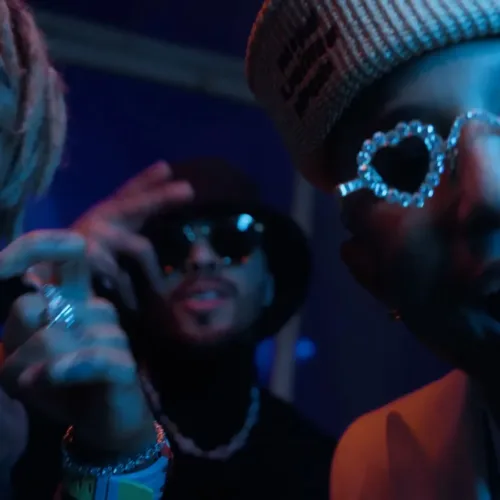Season two of HBO’s “Euphoria,” which aired its finale on Sunday night, has made headlines for many of the same reasons as its first: in short, anything but the show itself. Through its nine-episode sophomore season, “Euphoria” has functioned more as a collection of moments, ebbing and flowing in and out of one another with no real sense of direction. The approach was as thrilling as it was tedious, offering an experience that could, at once, be genuinely unpredictable and frustratingly aimless.
The most exasperated fans were more interested in the show’s behind-the-scenes drama than any of its underdeveloped narrative threads, or at least in discussing what these storylines represent in the greater narrative of prestige television than in the actual plot mechanics of the stories themselves. The remaining viewers found themselves scratching their heads on a near-weekly basis, rightfully concerned that the show’s sprawling vignettes — interesting as they could be at any given moment — weren’t going anywhere.
The reasons for this are twofold. First, there is the show’s viral success. It’s currently the most tweeted about show of the decade, making room for the same kinds of headline-ready narratives that captured those suffering in the wake of the disastrous “Game of Thrones” finale. On the other hand, season two of “Euphoria” often feels so enamored by its own ability to stir controversy it forgets to be engaging outside the trappings of pure shock value. Barbie Ferreira, who plays Kat on the show, reportedly storming off the “Euphoria” set, only gained the traction it did because the show was becoming equally one-dimensional, to the point that watching it almost felt redundant.
There were some notable exceptions, like the stunning season two premiere, “Trying to Get to Heaven Before They Close the Door,” which re-established “Euphoria” as must-see television despite the limitations of pandemic protocols. Its real-time midpoint, “Stand Still Like the Hummingbird,” was a much-needed reminder of the creator and showrunner Sam Levinson’s raw talent in tackling the harsh truths of drug abuse, even if it was divisive. Some audiences praised its realistic depiction of Rue’s addiction while acknowledging it as a variation of the “misery porn” portrayals that have come to define drug-based narratives in popular culture. Regardless of how audiences received the episodes, they were at least able to balance tension, character, and style in a way that characterizes what “Euphoria” is capable of at the peak of its powers.
Unfortunately, balance isn’t something “Euphoria” has ever provided with any consistency. Its first season seemed to thrive inside the incoherent storm of its creation, never committing itself to one character or one storyline long enough for any of them to establish real staying power. Yet, against all odds, it resonated as a commentary on the distorted wistfulness of our present collective moment, where everything seems to slip between our fingers the moment it’s within our grasp. In its second season, “Euphoria” demands to be taken seriously, offering what was probably envisioned as a more subdued and focused season of television that would allow Levinson’s bombastic directorial style to take a backseat to more character-driven stories.
Fans had good reason to believe that “Euphoria” would return with a newfound sense of maturity, especially after the two Special Episodes that focused on Rue and Jules, respectively. The first focuses on Rue’s relationship with her NA sponsor Ali (Colman Domingo), after she decides to break her sobriety. The other, co-written by Hunter Schafer, frames itself around a therapy session after Jules and Rue part ways at the end of season one. With COVID-19 protocols making the show’s trademark party scenes all but impossible, the Special Episodes arrived as layered, patient portrayals of the show’s dual protagonists and garnered acclaim from critics for what many saw as a massive leap in the right direction.
Instead, the second season was as fragmented and uneven as its predecessor, even if Levinson seems more confident in his ability to slow down the proceedings without sacrificing what makes the show unique. The real disappointment of this round of “Euphoria” stems back to its characters, who are portrayed more inconsequentially than ever, existing as little more than mouthpieces for Levinson’s take on the intricacies of East Highland High and contemporary youth culture, at large. If his pandemic-era “Malcolm & Marie” reminded us of anything, it’s that Sam Levinson only likes to write about Sam Levinson.
Between his self-aggrandizing writing style and reports that Levinson would regularly come to set without shot lists for the day, shooting for upwards of 17 hours per day, it’s no wonder there’s a tension in season two that seems to emanate beyond the screen. However, one character emerged from the rubble mostly unscathed and has possibly even benefited from Levinson’s disorganized reshuffling of priorities. Thanks to a commanding performance by Alexa Demie that’s still keenly attuned to the character’s sensitivities, Maddy Perez leaves a lasting impression as the new heart and soul of “Euphoria.”
Where characters like Rue, Jules, and Nate continue towards something that resembles closure, Maddy’s resolutions only make her more compelling. Her work with Minka Kelly this season was a highlight, especially since it was rumored that both actors refused to let the relationship become sexual, as Levinson had originally intended. Her relationship with Kelly’s character allowed Maddy to examine herself from outside the shadow of a man whose entire relationship with her depends on a willingness to give herself to him entirely.
Does “Euphoria” have any hopes of retaining whatever goodwill it might have left? If so, Levinson should make Maddy a priority moving forward — she’s the last line of defense in a series that’s been in a freefall since the very beginning.








